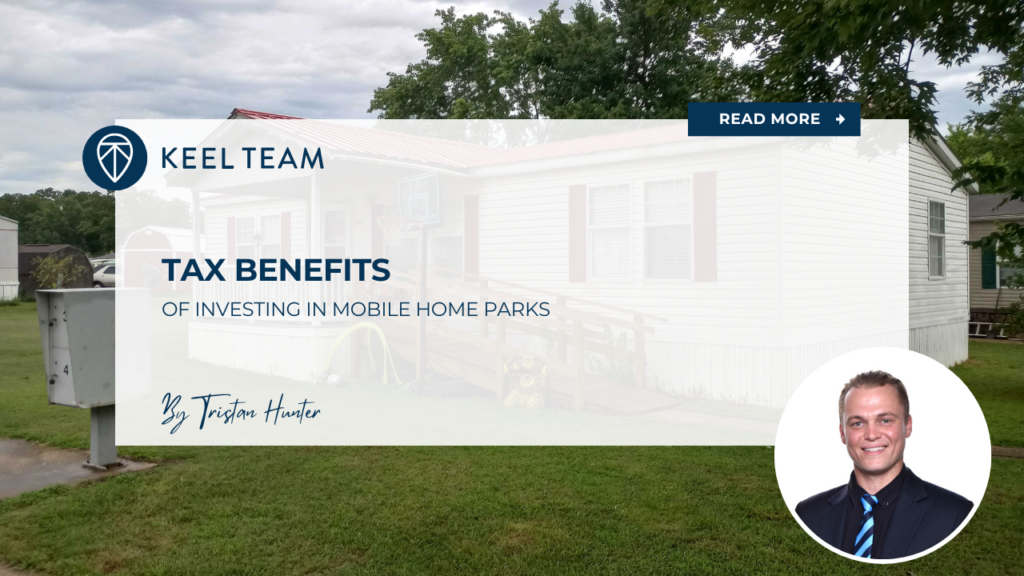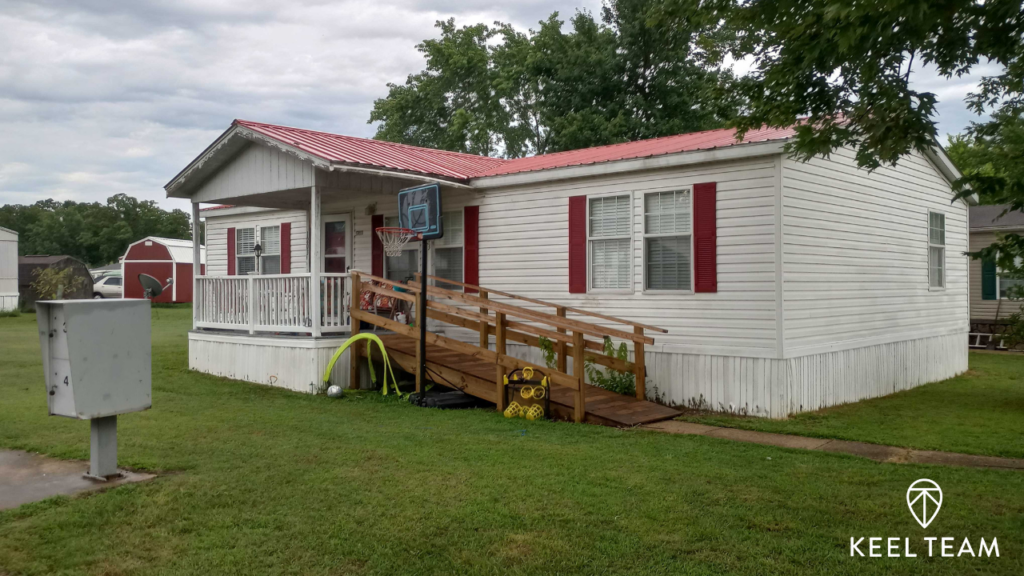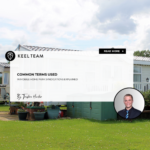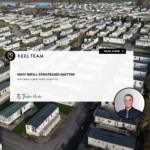Tax Benefits of Investing in Mobile Home Parks
-
 Tristan Hunter - Investor Relations
Tristan Hunter - Investor Relations

Investing in mobile home parks offers unique advantages, especially when it comes to taxes. While real estate investments often provide tax incentives, mobile home parks stand out as one of the most tax-efficient asset classes to date. From accelerated depreciation to potential income exclusions, mobile home park investors might enjoy significant tax benefits that can enhance overall return potential.
Understanding Tax Advantages in Real Estate
Real estate investments typically provide a range of tax benefits, including deductions for mortgage interest, depreciation, and property expenses. Investing in mobile home parks can take these benefits further due to investments vehicle’s unique structure. Unlike traditional real estate, where the building often accounts for most of the property’s value, mobile home parks primarily involve land and infrastructure, opening the door to additional tax opportunities.
1. Accelerated Depreciation
Depreciation allows real estate investors to deduct the cost of wear and tear on their properties over time. Mobile home parks typically qualify for accelerated depreciation, which can be more favorable than traditional real estate.
How Does It Work?
Mobile home park investors can depreciate assets like utility hookups, roads, and other infrastructure faster than buildings. In many cases, the average depreciation period for mobile home parks is around 17 years, compared to 27.5 years for apartments. This faster depreciation might allow investors to offset taxable income more effectively, improving cash flow potential.
Cost Segregation Studies
To maximize depreciation benefits, some mobile home park owners conduct cost segregation studies. These studies break down the property’s components, categorizing items like electrical systems or pavement into shorter depreciation schedules. While there’s an upfront cost to performing a study, it may yield substantial tax savings over time.
2. Tax Deductions for Operating Expenses
Mobile home park owners can deduct a variety of expenses related to operating and maintaining the property. These deductions may include:
- Property management fees
- Repairs and maintenance
- Utilities
- Insurance premiums
- Marketing and advertising costs
- Legal and accounting fees
By deducting these expenses, mobile home park owners might reduce their taxable income, which could make the investment more profitable.
Download our FREE eBook on the Top 20 things to know BEFORE investing in mobile home parks!
3. 1031 Exchange Opportunities
A 1031 exchange allows real estate investors to defer paying capital gains taxes when selling one property and reinvesting the proceeds into another like-kind property. Mobile home parks typically qualify for this tax-deferral strategy, enabling investors to grow their portfolios without an immediate tax burden.
How It Benefits Mobile Home Park Investors
If a mobile home park owner sells their property for a profit, they can use a 1031 exchange to reinvest the gains into another mobile home park or similar property. This strategy might defer taxes and preserve capital for future investments.
4. Tax-Exempt Income Through Cost Segregation
Cost segregation can also lead to passive losses that might offset other forms of income. For investors with high taxable income, this benefit could reduce their overall tax liability.
Passive Income Benefits
Mobile home park investments often generate passive income, which can qualify for specific tax exclusions or reductions. While active participation in the management of the property might affect eligibility, working with a qualified tax professional could help navigate these rules.
5. Interest Deduction on Loans
Mobile home park owners can often deduct the interest paid on loans used to acquire or improve the property. This deduction might be especially beneficial for those financing their investments with substantial leverage.
How It Works
Loan interest deductions apply to both acquisition and improvement costs. For example, if an investor takes out a loan to add new infrastructure, such as roads or utility connections, the interest on that loan might be deductible.
6. Opportunity Zone Tax Incentives
Some mobile home parks are located in federally designated opportunity zones, which may offer additional tax benefits. Opportunity zones were created to encourage investments in economically distressed areas by providing tax incentives.
Potential Benefits
- Deferred Capital Gains: Investors might defer taxes on gains reinvested into a qualified opportunity fund.
- Reduced Taxes: Investments held for certain periods may qualify for partial exclusion of deferred gains.
- Tax-Free Growth: Gains from opportunity zone investments held for at least 10 years may qualify for tax-free treatment.

7. Favorable Treatment for Land-Lease Communities
Mobile home parks generally operate on a land-lease model, which means tenants own their homes and rent the land. This model can offer specific tax advantages:
- Lower Depreciation Costs on Structures: Because tenants own their homes, mobile home park owners might not need to depreciate as many structures.
- Reduced Property Maintenance Expenses: Fewer physical assets to maintain might lead to lower taxable expenses.
8. Tax Treatment of Capital Improvements
Investing in capital improvements, such as upgrading roads, utilities, or community amenities, might qualify for additional tax benefits. While these costs are typically capitalized, they can enhance the property’s value and generate depreciation deductions.
Examples of Capital Improvements
- Paving roads within the mobile home park.
- Installing submeters.
- Infilling vacant lots.
9. State-Specific Tax Benefits
Some states offer tax incentives specifically for mobile home park investments. These benefits might include property tax reductions, credits for providing affordable housing, or grants for infrastructure improvements.
What to Look For
Understanding local and state-specific tax laws could help mobile home park investors identify additional savings opportunities. Working with a tax advisor familiar with the mobile home park industry is often recommended.
10. Tax Benefits for Affordable Housing
Mobile home parks qualify as affordable housing, which may come with its own set of tax benefits. These incentives could include tax credits for preserving affordable housing or grants to improve infrastructure for low-income tenants.
Low-Income Housing Tax Credits (LIHTC)
In some cases, mobile home park owners might qualify for LIHTCs by ensuring that rental rates remain affordable for certain income levels. These credits could reduce federal tax liability while supporting community housing needs.
Conclusion
The tax benefits of investing in mobile home parks might provide significant incentives for real estate investors. From accelerated depreciation to 1031 exchanges and opportunity zone incentives, mobile home parks generally offer unique advantages that might not be as accessible in other asset classes. While these benefits can be substantial, consulting with a tax professional is often necessary to navigate the complexities of tax law and maximize potential savings. Good luck!
Are you looking for MORE information? Book a 1-on-1 consultation with Andrew Keel to discuss:
- A mobile home park deal review
- Due diligence questions
- How to raise capital from investors
- Mistakes to avoid, and more!
Disclaimer:
The information provided is for informational purposes only and is not investment advice or a guarantee of any kind. We do not guarantee profitability. Make investment decisions based on your own research and consult registered financial and legal professionals. We are not registered financial or legal professionals and do not provide personalized investment recommendations.

Tristan Hunter - Investor Relations
View The Previous or Next Post
Subscribe Below 👇





